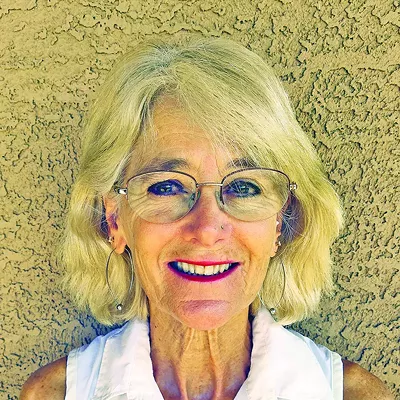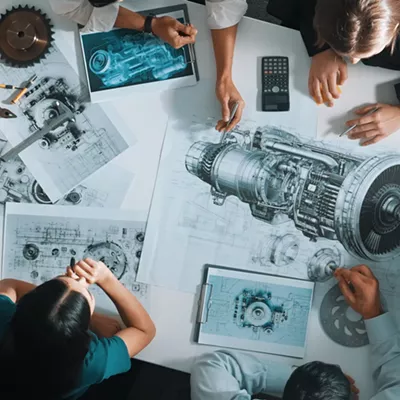Our reliance on plastic bags is both good and bad. They are simultaneously a boon because they're convenient, and an anathema because they degrade the environment.
The options to reduce plastic-bag usage that the Tucson City Council is considering are (a) to try to educate Tucsonans over the next two years and thus reduce bag use by 50 percent (an unfunded mandate), and (b) if the effort fails after two years, the mayor and council members would then implement other measures to reduce or ban bag use.
The City Council is tentatively scheduled for an afternoon study session on the plastic- bag issue on Wednesday, Nov. 14. The League of Women Voters of Greater Tucson, which has a mandate to help communities learn what they can do "at the individual and household levels to save energy and reduce our carbon footprint," is monitoring the City Council's actions, said league president Phylis Carnahan.
Single-use plastic bags, or SUPBs, are made from high-density polyethylene, a petroleum-based plastic. Introduced in the 1970s as an alternative to paper bags, they now make up 80 percent of bags distributed at grocery stores.
Let's discuss why a plastic-bags study is in order:
• The American Chemistry Council estimates Americans use more than 93 billion plastic bags per year, or about 300 bags per person.
• The Pima Association of Governments estimates the Tucson region consumes more than 182 million disposable plastic bags per year. (City Councilman Paul Cunningham's Jan. 23 memo brought the issue to the council's attention.)
• Single-use plastic carry-out bags have an average use time of 12 minutes and are made from petrochemicals that require significant environmental resources to manufacture, transport, recycle and dispose of.
But plastic bags are light, strong and convenient—why not use them?
Cunningham says the impact of plastic bags presents a growing threat to our environment on multiple levels. "Every square mile of ocean has about 46,000 pieces of plastic floating in it," Cunningham's memo said. "Plastic does not bio-degrade, but rather photo-degrades, meaning plastic breaks down into smaller fragments which soak up toxins, contaminating soil and waterways and killing sea animals who digest them. Plastic bag 'birds' can be seen blowing through the air or caught on cactus, trees or shrubs."
Plastic bags were the third-largest entangling debris for marine animals found in the 2009 International Coastal Cleanup. (First and second were fishing lines and nets, respectively.) The World Wildlife Fund says that 100,000 whales, seals and turtles die every year as a result of eating or being trapped by plastic bags.
In 2009, the city of Tucson adopted Ordinance 10642 to establish plastic-bag recycling requirements for major retail establishments such as Safeway, Bashas', Walmart, Target and others that provide carry-out plastic bags for their customers. The rate of recycling was 45 percent for Tucson in its second year (ending in September 2011), according to the Arizona Food Marketing Alliance and the Arizona Retailers Association.
But SUPBs are hard to recycle, because they are not biodegradable in landfills. Only 4.5 percent are recycled nationally because they are also hard to sort, according to the U.S. Environmental Protection Agency.
Both Tim McCabe, CEO of the Arizona Food Marketing Alliance, and Mike Varney, president of the Tucson Metro Chamber, are against any bag ban that would include fees. Both want to promote awareness and education of the voluntary program Bag Central.
"There is no need for government to mandate or implement bag fees or taxes," McCabe said, adding they would "create hardships on consumers struggling in today's tough economy."
Varney said the chamber's concern grows when "the heavy hand of government is raised" and removes consumer choice, adding to a company's operating expenses.
Katherine Kent is head of the city's Small, Minority, and Women-Owned Business Commission and a member of the city's Single Use Plastic Bag Committee, established in March 2012 to recommend options to reduce the consumption of plastic bags and increase recycling. Kent said her commission voted Oct. 25 to recommend banning the bags and send "a strong message" that plastics should be used in medicine, such as for pacemakers, and to make lighter cars, but not to make plastic bags.
Get the facts, then decide for yourself whether plastic bags are worth it.







